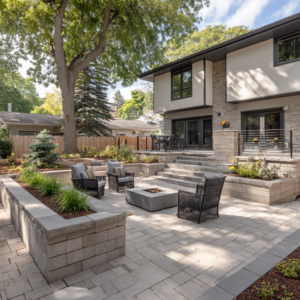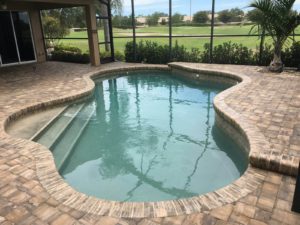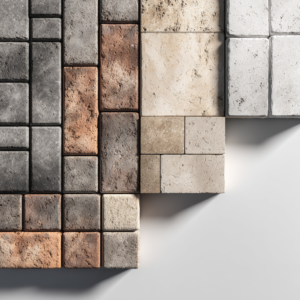When it comes to deciding on flooring options to embellish your home entrance or driveways, these are the two options that come to mind first. Well, your guts have probably already told you what you really want for your house, but reading our pavers vs concrete comparison you will also have all your facts right in order to make your decision.
Which material performs better? Which is more expensive? Which requires more maintenance? And how about repair? You will find the answers to all these questions right here.
Jump to:
Pavers vs Concrete: Quick Facts
| Pavers | Concrete | |
| Appearance | More Visually Appealing | More Limited |
| Durability | Higher | Lower |
| Maintenance | Low | Low |
| Repairs | Easy, Unexpensive | Complicated, Expensive |
| Cracks | Will Hardly Happen | Will Likely Happen |
| Resale Value | Adds considerable value | Adds minimum value |
| Cost | Higher Short Term, Lower Long Term | Lower Short Term, Higher Long Term |
Pavers vs Concrete: Basic Differences
Pavers, also known as paving stones, are individual units made of brick, concrete, or natural stones that are laid in patterns in order to create an interesting and extremely durable flooring system.
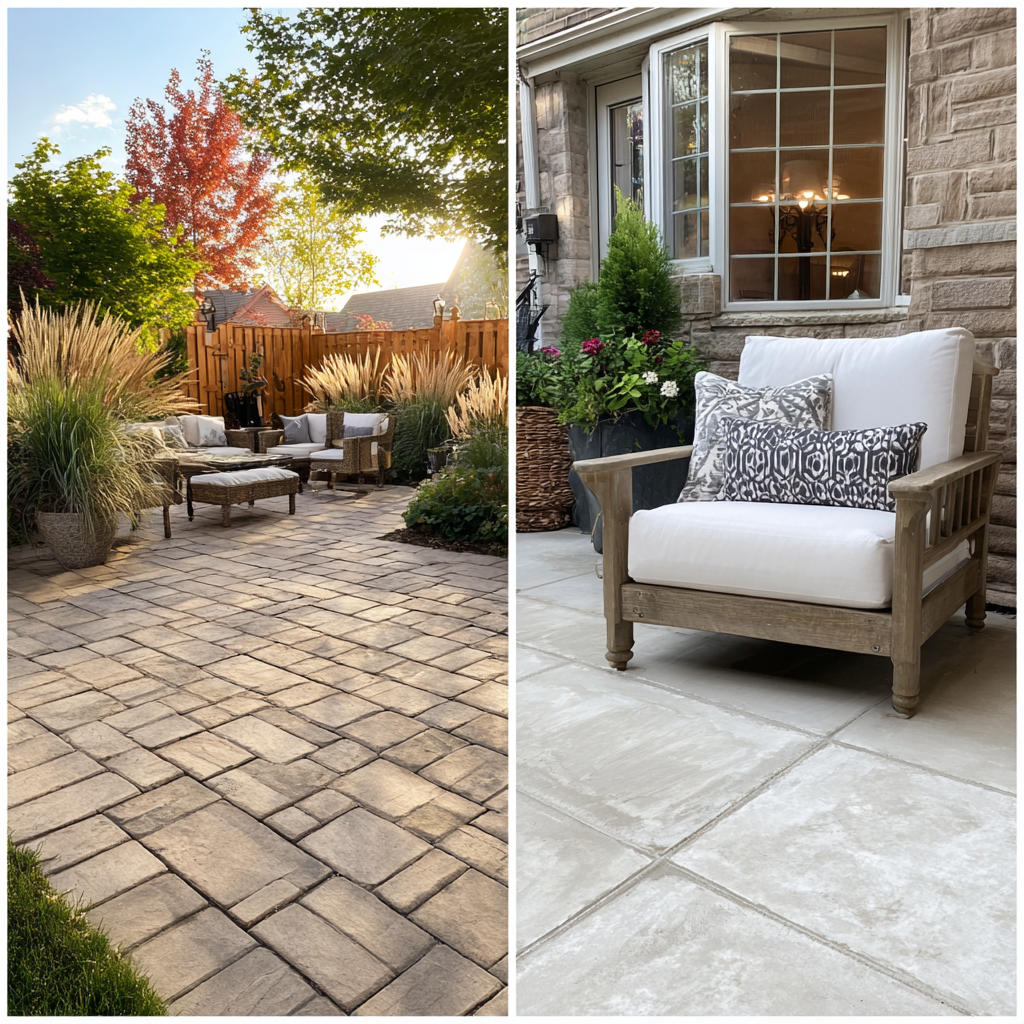
Opposing pavers on this analysis is poured concrete, which is also a durable flooring option.
In this analysis, we will be discussing in-depth about the main differences these two options present when it comes to appearance, durability, maintenance, repairs, safety, installation, cost and returns on investment.
Appearance
Although it can be argued that this is a matter of personal preference, it’s usually said that pavers are more visually appealing than concrete slabs.
Paving stones are offered in an incredible variety of colors, textures, shapes, and sizes, additionally, they can be laid in numerous different patterns. Due to the combination of all these variables, pavers are able to conform to any design.
Poured concrete offers a nice flat surface that can have color and pigments added to it, although those usually fade with time. In order to achieve more design possibilities, it’s also possible to opt for stamped concrete slabs, which are slabs of concrete decorated in such a way that they look like pavers.
Durability
When it comes to durability pavers also have the upper hand, as they are said to be 4 times as strong as concrete slabs. The fact that pavers are laid in smaller units also helps.
Concrete slabs are prone to splitting and cracking with time. Those things can happen due to a shift on the ground beneath them, or even temperature changes.
Although both options are extremely durable, concrete will last for good years, while pavers will last for decades.
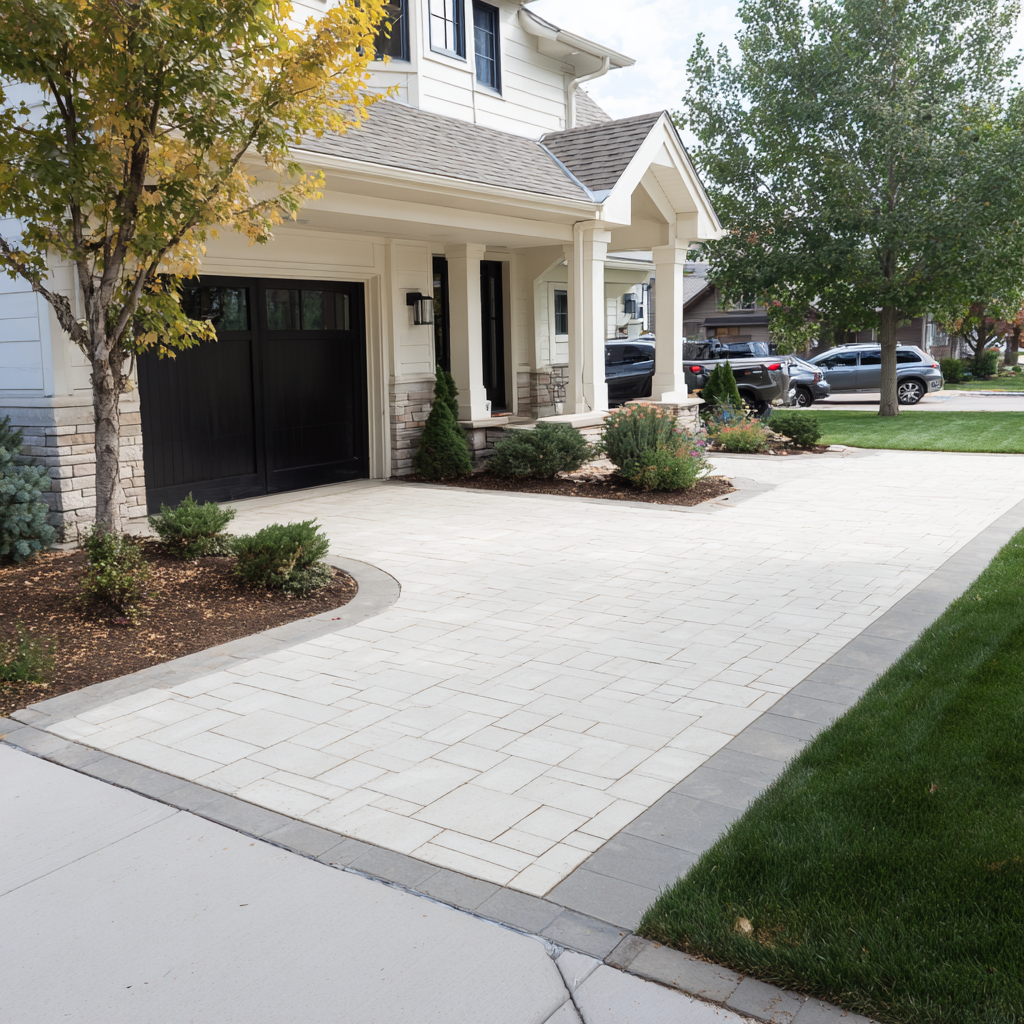
Repairs
Regardless of how durable both options are, there will come a time when they will fail you and crack (or erode, in case of concrete pavers). When that happens paver repairs are easier to tackle. You will just need to replace individual units, which is cheap and can even be done by yourself.
Concrete repairs are harder since the whole slab will have to be removed and poured again. What creates the need for special tools and professional manpower.
Even if you choose to repair pavers with professionals those repairs will be way cheaper.
Maintenance
Concrete is easier to maintain since there’s not much do but cleaning. Optionally you can seal concrete slabs regularly to avoid stains, which is definitely recommendable.
Although pavers are not hard to clean, it is not as straightforward as it is with concrete. Also paver joint sand will require some attention in order to avoid loosening and weed growth, however that can be avoided completely if you opt for polymeric sand.
Sealing pavers regularly to avoid stains is also optional and recommendable.
Safety
Concrete slabs present a flat and smooth surface that becomes extra slippery when wet.
Pavers, on the other hand, are naturally more slip-resistant and can be texturized, or present increased edges to improve safety even more.
Installation
Pavers are more difficult to install, if you’ve read our article titled: “How to Level The Ground for Pavers” than you know why.
Both pavers and poured concrete require groundwork and digging in order to be installed, however, the amount of work is bigger when it comes to pavers. This drives higher installation costs as well.
If you’re thinking about doing it all yourself, that’s not recommended for either choice, however, pavers will be easier for you, since pouring and curing concrete appropriately requires skills and tools which are harder to get.
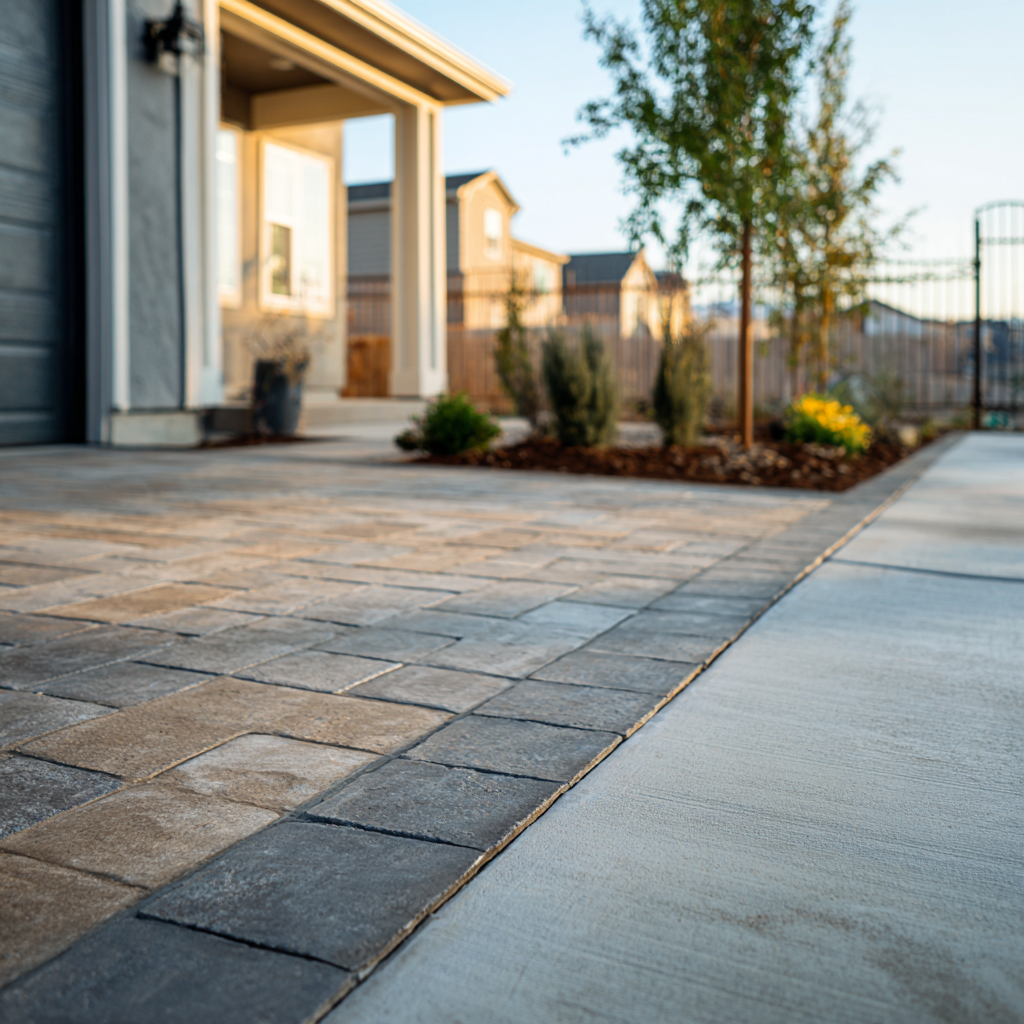
Costs
The total cost of your project will vary according to your choice of concrete or pavers, and especially according to the area you want to cover.
According to Home Advisor, the cost to install a concrete patio or driveway ranges between $6 and $10 per square foot. Meanwhile, the price for paver installation ranges between $10 and $20 per square foot.
That means when it comes to installation price pavers are more expensive. Keep in mind that if you wish to go with stamped concrete, then the installation price will be similar to that of pavers.
Even though the cost of installing pavers is higher, in the long run, things will be different. Each concrete slab repair will easily cost 1000+ dollars, while paver repairs will cost you way less than that.
ROI (RETURN ON INVESTMENT)
Here you need to consider the fact that pavers will last longer, and cost way less to repair. That alone would mean that pavers offer a greater ROI. However, that’s not all.
Paver will also immediately improve your house value due to their effects on curb appeal, which means you can recoup some of the investment if you ever want to sell your place, unfortunately, the same is not true for concrete.
Pavers vs Concrete: Which is right for me?
Congratulations on reading until here. If you’re still wondering which one is right for you, we see no reason not to go with pavers unless your budget is not large enough for it.
However, there are many options of pavers available, and the actual price of your project might not be as high as you’re thinking. We extremely recommend you to contact a paver contractor in your county and request a free estimate.

JSBrick has been proudly serving the counties of Manatee and Sarasota for the past 20 years, if you live in Florida, don’t hesitate to give us a call.
Click on the social media icons to share this article with your friends!
